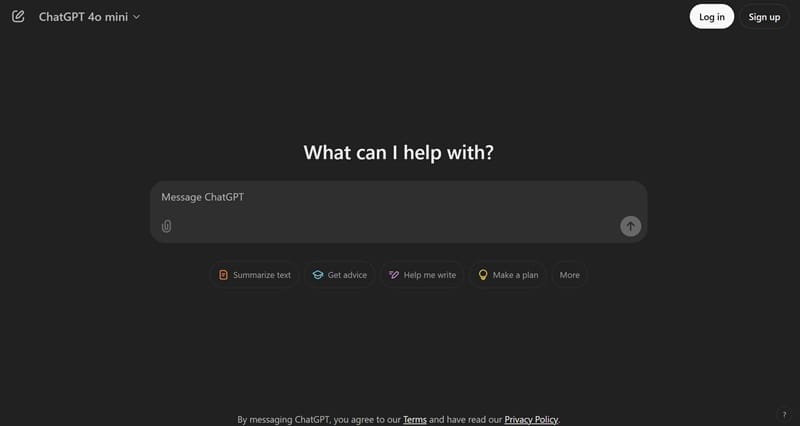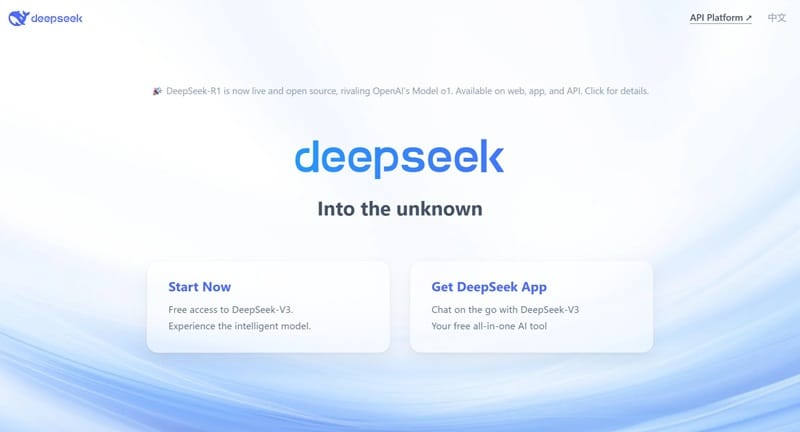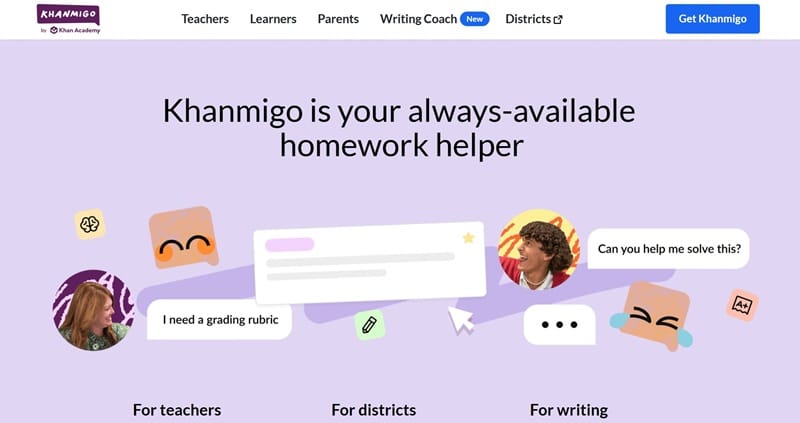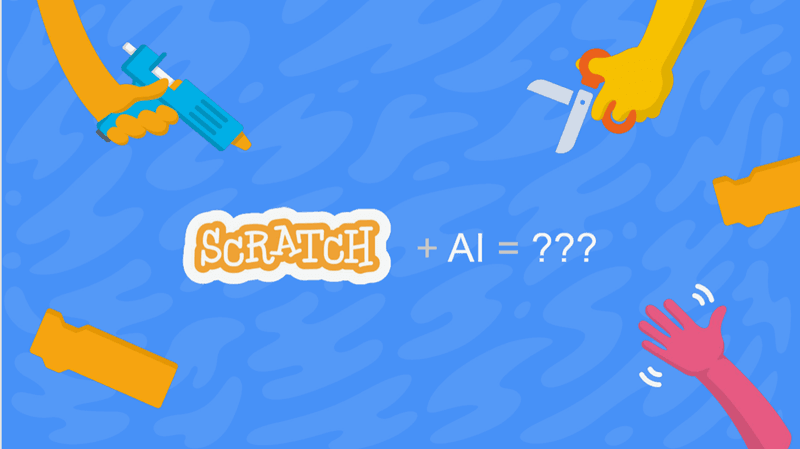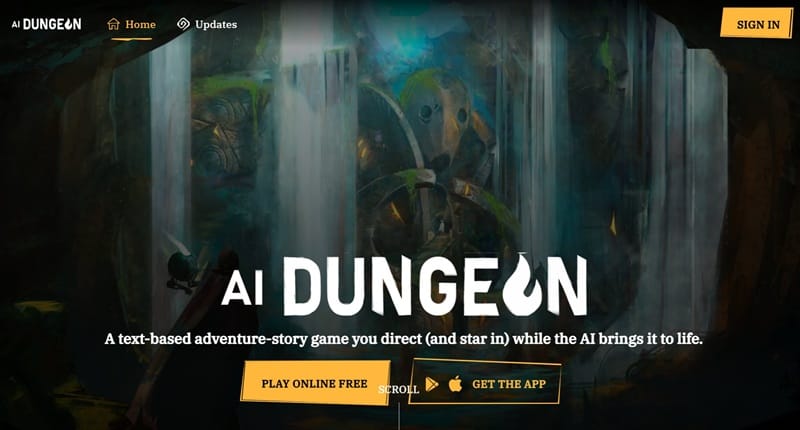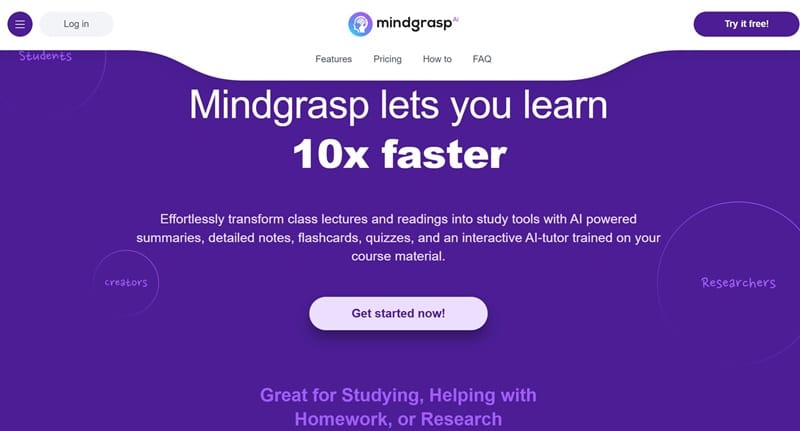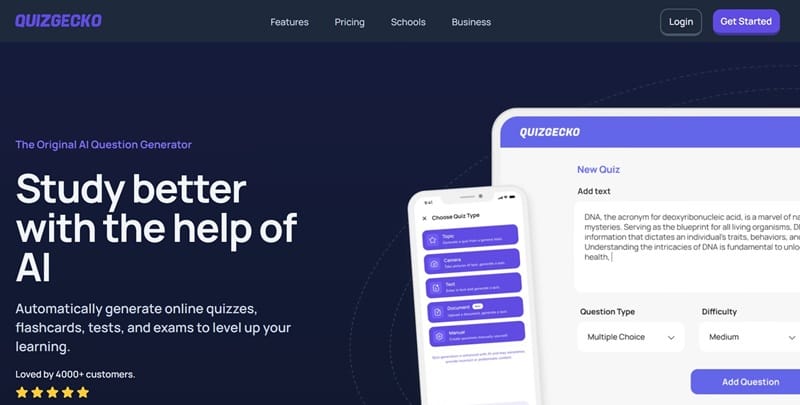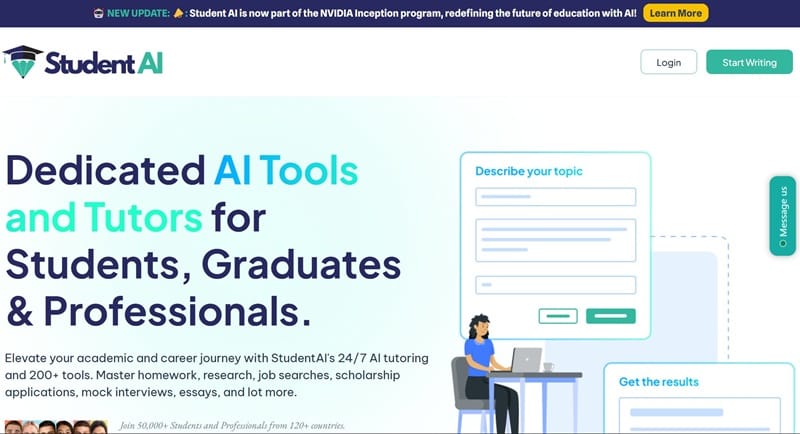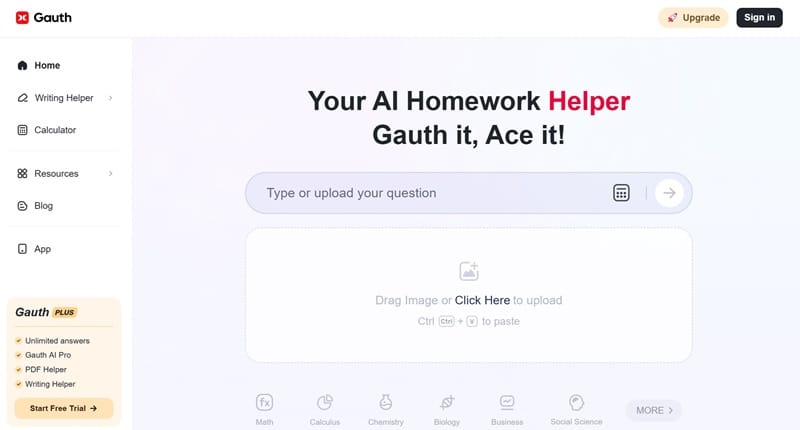10 AI Tools to Supercharge Your Child’s Learning Journey
Artificial intelligence is no longer just the stuff of sci-fi movies. It’s here, it’s real, and it’s changing the way we learn, work, and live.
For kids, AI-powered tools offer exciting opportunities to explore, create, and learn in ways that weren’t possible even a decade ago. However, with great power comes great responsibility. It’s also important to guide our children on how to use AI ethically and wisely.
Here’s a look at 10 AI tools that can enhance your child’s learning experience, and some tips for ensuring responsible use.
1. ChatGPT
ChatGPT is an artificial intelligence (AI) chatbot developed by OpenAI, designed to engage in natural language conversations and assist with a wide range of tasks. It is based on the Generative Pre-trained Transformer (GPT) architecture, specifically fine-tuned for interactive dialogue.
ChatGPT can be a valuable AI tool to support children's learning in a variety of ways. Its ability to provide instant, personalised, and interactive assistance makes it an excellent resource for educational purposes.
How It Can Help Kids:
- Summarises long texts or chapters, making it easier for kids to review key points.
- Provides detailed explanations for solving problems, such as math equations or science experiments.
- Simulates interactive role-playing for learning languages or practicing debates.
- Tailors its responses to a child's learning level, providing more advanced explanations for older kids or simpler ones for younger learners.
Limitations to Keep in Mind
- Supervision Needed: Younger children may require guidance to use ChatGPT effectively and avoid over-reliance.
- Accuracy: While ChatGPT is highly capable, it may occasionally provide incorrect information, so cross-checking is important.
2. DeepSeek
DeepSeek (“深度求索“), founded in 2023, is a Chinese company dedicated to making artificial general intelligence (AGI) a reality. While DeepSeek's primary focus is on advancing AGI, its technologies and tools can be adapted to support education and learning for children in various ways.
How It Can Help Kids:
- AI-powered chatbots or virtual tutors can provide instant feedback and explanations, helping kids understand complex concepts in subjects like math, science, or language arts.
- DeepSeek's AI can be used to develop educational games that make learning fun and interactive. By incorporating game mechanics, children are more likely to stay motivated and engaged while mastering new skills.
- AI-driven language models can assist children in learning new languages by providing real-time translations, pronunciation guidance, and conversational practice.
- DeepSeek's technologies can support children with learning disabilities or special needs by offering adaptive tools, such as text-to-speech, speech-to-text, or visual aids.
3. Khanmigo by Khan Academy
Khanmigo is an AI-powered teaching assistant developed by Khan Academy, a renowned non-profit educational platform. Khanmigo is designed to enhance the learning experience for students, teachers, and parents by leveraging artificial intelligence to provide personalised, interactive, and engaging educational support.
How It Can Help Kids:
- Offers step-by-step guidance for solving math problems and understanding scientific concepts.
- Identifies areas where a student may be struggling and provides additional practice or explanations to address those gaps.
- Generates practice problems and quizzes to reinforce learning and prepare students for tests.
- Provides real-time feedback to encourage mastery of subjects.
4. Duolingo
Duolingo is a popular language-learning platform and app designed to make learning new languages fun, accessible, and effective. It uses gamification, bite-sized lessons, and adaptive learning techniques to help users of all ages learn languages at their own pace. Duolingo's integration of AI further enhances its ability to personalise and optimise the learning experience, especially for kids.
How It Can Help Kids:
- Duolingo's AI, powered by algorithms like Birdbrain, adjusts the difficulty of lessons based on a child's performance. If a child struggles with a concept, the AI provides additional practice or revisits the topic later.
- Includes AI-driven speech recognition to help kids improve pronunciation by comparing their speech to native speakers' models.
5. Scratch with AI Extensions
Scratch with AI Extensions is an enhanced version of Scratch, a block-based visual programming language developed by MIT to teach kids coding and computational thinking. By integrating AI extensions, Scratch enables children to explore and experiment with artificial intelligence concepts while creating interactive stories, games, and animations. This combination of coding and AI provides a powerful platform for kids to learn and innovate.
How It Can Help Kids:
- Introduces AI concepts like machine learning through simple drag-and-drop coding.
- Kids can build AI-powered chatbots, animations, and games.
- Encourages iterative learning with real-time debugging tools.
- Integrates STEM principles into fun, hands-on projects.
6. AI Dungeon
AI Dungeon is an interactive, AI-powered text-based adventure game that uses natural language processing (NLP) to create dynamic and immersive storytelling experiences. Developed by Latitude, AI Dungeon allows players to input actions or decisions, and the AI generates responses in real-time, creating a unique and endlessly customisable narrative. Players can choose from various settings (e.g., fantasy, mystery, sci-fi) and roles (e.g., hero, detective, explorer) to create their own adventures.
How It Can Help Kids:
- Kids practice writing by describing actions, dialogue, and scenes, which helps improve their vocabulary, grammar, and storytelling abilities.
- Kids must make choices that influence the story's outcome, teaching them to think strategically and consider consequences.
- Kids can create or explore stories set in different time periods or cultures, learning about history, geography, and social studies in an engaging way.
- The AI creates unexpected twists and challenges, requiring kids to adapt and solve problems creatively.
7. Mindgrasp AI
Mindgrasp AI is designed to assist students by transforming class lectures and readings into comprehensive study aids. It leverages natural language processing (NLP) and machine learning to help students understand, organise, and retain knowledge more effectively.
How It Can Help Kids:
- Generates concise summaries of lengthy texts, aiding in quick comprehension.
- Automatically creates flashcards and quizzes to test knowledge retention.
- Produces in-depth notes from lectures and readings to reinforce learning.
- Offers an AI-driven tutor to answer questions and clarify doubts in real-time.
8. Quizgecko
Quizgecko is an AI tool for creating quizzes and practice tests from any content. It’s perfect for self-assessment and reviewing study materials. This tool is particularly useful for parents who want to create custom quizzes for kids.
How It Can Help Kids:
- Transforms text, such as articles, notes, or textbooks, into multiple-choice or fill-in-the-blank quizzes and flashcards, saving kids and parents time that would otherwise be spent creating study materials.
- Uses spaced repetition techniques to schedule quizzes at optimal intervals, helping kids retain information longer.
- Provides instant feedback on quiz answers, helping kids learn from mistakes and improve quickly.
9. StudentAI
StudentAI is an AI-powered educational platform designed to assist students in their learning journey by providing personalised support, resources, and tools. It leverages artificial intelligence to adapt to individual learning styles and needs, making it a valuable resource for kids to enhance their academic performance and understanding.
How It Can Help Kids:
- Analyses a child's strengths and weaknesses to create customised learning plans that focus on areas needing improvement.
- Helps kids understand and complete their homework by providing detailed explanations and step-by-step solutions.
- Tracks a child's progress over time, providing insights into their development and areas that need more attention.
- Suggests additional resources, such as articles, videos, and books, to help kids dive deeper into subjects they are interested in.
10. Gauthmath
Gauthmath is a mobile and web-based application that uses artificial intelligence and real human tutors to help students solve a wide range of mathematical questions, from basic arithmetic to advanced calculus. Users can take a photo of a math problem, and the app provides detailed solutions, explanations, and sometimes even multiple methods to solve the same problem.
How It Can Help Kids:
- Provides solutions for a wide range of math problems, including algebra, calculus, and geometry.
- Provides detailed steps to solve each problem, helping kids understand the process rather than just the answer.
- For more complex problems, kids can connect with live tutors who provide personalised assistance and explanations.
Teaching Responsible AI Use
While these AI tools offer amazing benefits, it’s crucial to guide kids on the ethical implications of AI. Here are some principles to help ensure responsible use:
Set Boundaries: Limit screen time and establish clear rules for when and how AI tools can be used.
Recognise Bias: Teach kids that AI tools can sometimes reflect biases present in the data they are trained on. Encourage them to question and analyse the information they receive.
Verify Information: Emphasise the importance of cross-referencing AI-generated content with credible sources.
Avoid Plagiarism: Make sure kids understand that while AI can assist with writing and research, the work they submit should be their own.
Respect Privacy: Help kids understand the value of their personal data and how to protect it. Teach them not to share sensitive information with AI tools.
Discuss Ethical Concerns: Talk about potential misuse of AI, such as creating deepfakes or spreading misinformation, and why it’s important to avoid such practices.
By fostering a responsible and curious mindset, you can ensure your kids use AI tools to empower their learning and creativity without falling into ethical pitfalls.
A big fan of MOOC, AI and data science. I am intrigued by how technology has transformed education and makes learning fun again.


